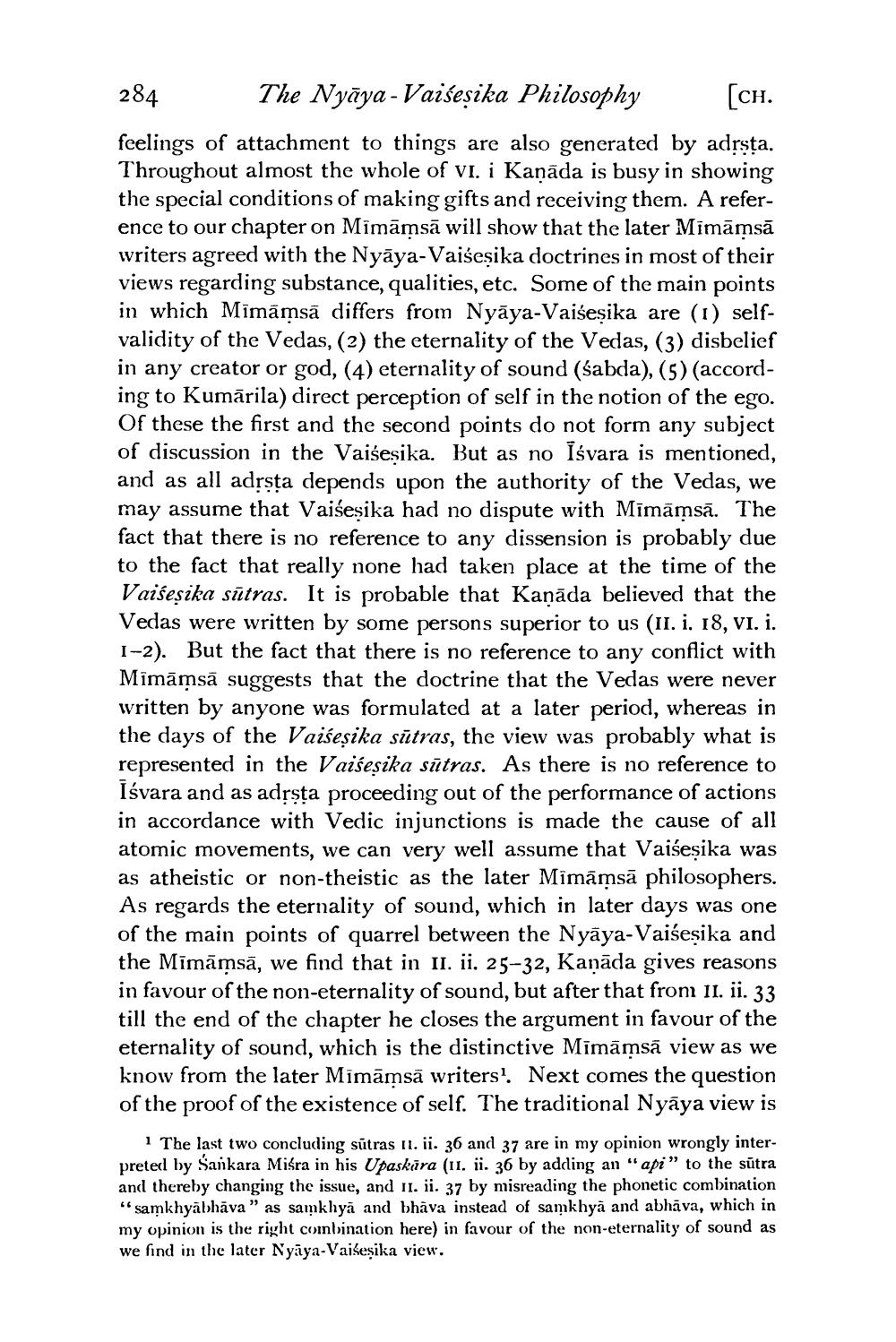________________
284
The Nyaya - Vaiseṣika Philosophy
[CH.
feelings of attachment to things are also generated by adṛṣṭa. Throughout almost the whole of VI. i Kaṇāda is busy in showing the special conditions of making gifts and receiving them. A reference to our chapter on Mīmāmsā will show that the later Mimāmsā writers agreed with the Nyāya-Vaiseṣika doctrines in most of their views regarding substance, qualities, etc. Some of the main points in which Mimämsä differs from Nyaya-Vaiseṣika are (1) selfvalidity of the Vedas, (2) the eternality of the Vedas, (3) disbelief in any creator or god, (4) eternality of sound (sabda), (5) (according to Kumārila) direct perception of self in the notion of the ego. Of these the first and the second points do not form any subject of discussion in the Vaiseṣika. But as no Īśvara is mentioned, and as all adṛsta depends upon the authority of the Vedas, we may assume that Vaiseṣika had no dispute with Mīmāmsā. The fact that there is no reference to any dissension is probably due to the fact that really none had taken place at the time of the Vaiseṣika sūtras. It is probable that Kaṇāda believed that the Vedas were written by some persons superior to us (II. i. 18, VI. i. 1-2). But the fact that there is no reference to any conflict with Mīmāmsā suggests that the doctrine that the Vedas were never written by anyone was formulated at a later period, whereas in the days of the Vaiseṣika sutras, the view was probably what is represented in the Vaisesika sutras. As there is no reference to İsvara and as adṛṣṭa proceeding out of the performance of actions in accordance with Vedic injunctions is made the cause of all atomic movements, we can very well assume that Vaiseṣika was as atheistic or non-theistic as the later Mimāmsā philosophers. As regards the eternality of sound, which in later days was one of the main points of quarrel between the Nyaya-Vaiśeṣika and the Mimāmsā, we find that in II. ii. 25-32, Kanāda gives reasons in favour of the non-eternality of sound, but after that from II. ii. 33 till the end of the chapter he closes the argument in favour of the eternality of sound, which is the distinctive Mimamsa view as we know from the later Mīmāmsā writers'. Next comes the question of the proof of the existence of self. The traditional Nyaya view is
1 The last two concluding sutras II. ii. 36 and 37 are in my opinion wrongly interpreted by Sankara Miśra in his Upaskāra (11. ii. 36 by adding an "api" to the sutra and thereby changing the issue, and II. ii. 37 by misreading the phonetic combination "samkhyābhāva" as samkhyā and bhava instead of samkhya and abhava, which in my opinion is the right combination here) in favour of the non-eternality of sound as we find in the later Nyaya-Vaikeṣika view.




